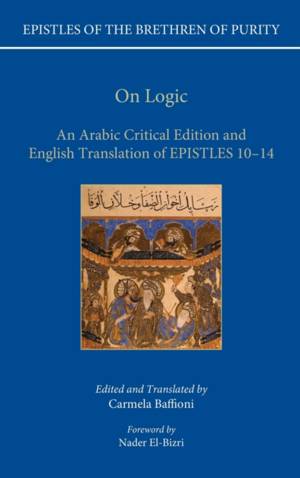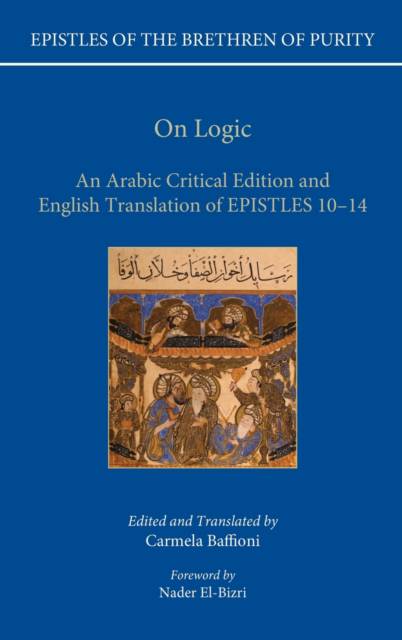
- Afhalen na 1 uur in een winkel met voorraad
- Gratis thuislevering in België vanaf € 30
- Ruim aanbod met 7 miljoen producten
- Afhalen na 1 uur in een winkel met voorraad
- Gratis thuislevering in België vanaf € 30
- Ruim aanbod met 7 miljoen producten
Zoeken
On Logic
An Arabic Critical Edition and English Translation of Epistles 10-14
€ 133,95
+ 267 punten
Omschrijving
The Ikhwan al-Safa (Brethren of Purity), the anonymous adepts of a tenth-century esoteric fraternity based in Basra and Baghdad, hold an eminent position in the history of science and philosophy in Islam due to the wide reception and assimilation of their monumental encyclopaedia, the Rasa'il Ikhwan al-Safa (Epistles of the Brethren of Purity). This compendium contains fifty-two epistles offering synoptic accounts of the classical sciences and philosophies of the age; divided into four classificatory parts, it treats themes in mathematics, logic, natural philosophy, psychology, metaphysics, and theology, in addition to didactic fables. The Rasa'il constitutes a paradigmatic legacy in the canonization of philosophy and the sciences in mediaeval Islamic civilization, as well as having shown a permeating influence in Western culture. The present volume is the second of this definitive series, consisting of the very first critical edition of the Rasa'il in its original Arabic, complete with the first fully annotated English translation. Prepared by Professor Carmela Baffioni, Epistles 10-14 comprise the foundations of logic, which remained a fundamental component in pedagogy until the twentieth century. The Ikhwan treat the Isagoge and the larger part of the Organon, both of which were circulating through the Islamic world at that time, as they set about detailing the ten categories of existents, the five predicables, and other such commonplaces of Aristotelian logic, including his seminal method of syllogistic inference. With the claim that logic is the noblest of man's arts, and man the noblest of creatures, the Ikhwan cast Aristotelian tropes in a spiritual light.
Specificaties
Betrokkenen
- Uitgeverij:
Inhoud
- Aantal bladzijden:
- 432
- Taal:
- Engels
- Reeks:
Eigenschappen
- Productcode (EAN):
- 9780199586523
- Verschijningsdatum:
- 16/12/2010
- Uitvoering:
- Hardcover
- Formaat:
- Genaaid
- Afmetingen:
- 152 mm x 234 mm
- Gewicht:
- 780 g

Alleen bij Standaard Boekhandel
+ 267 punten op je klantenkaart van Standaard Boekhandel
Beoordelingen
We publiceren alleen reviews die voldoen aan de voorwaarden voor reviews. Bekijk onze voorwaarden voor reviews.










